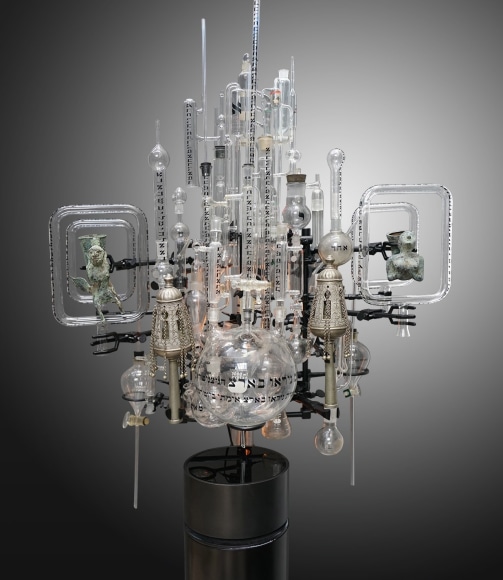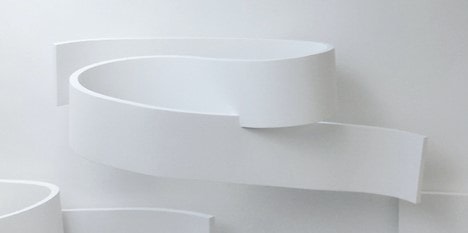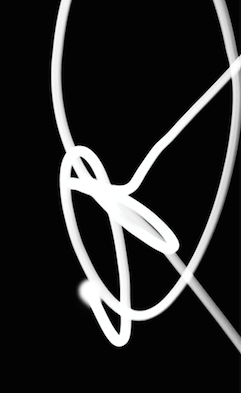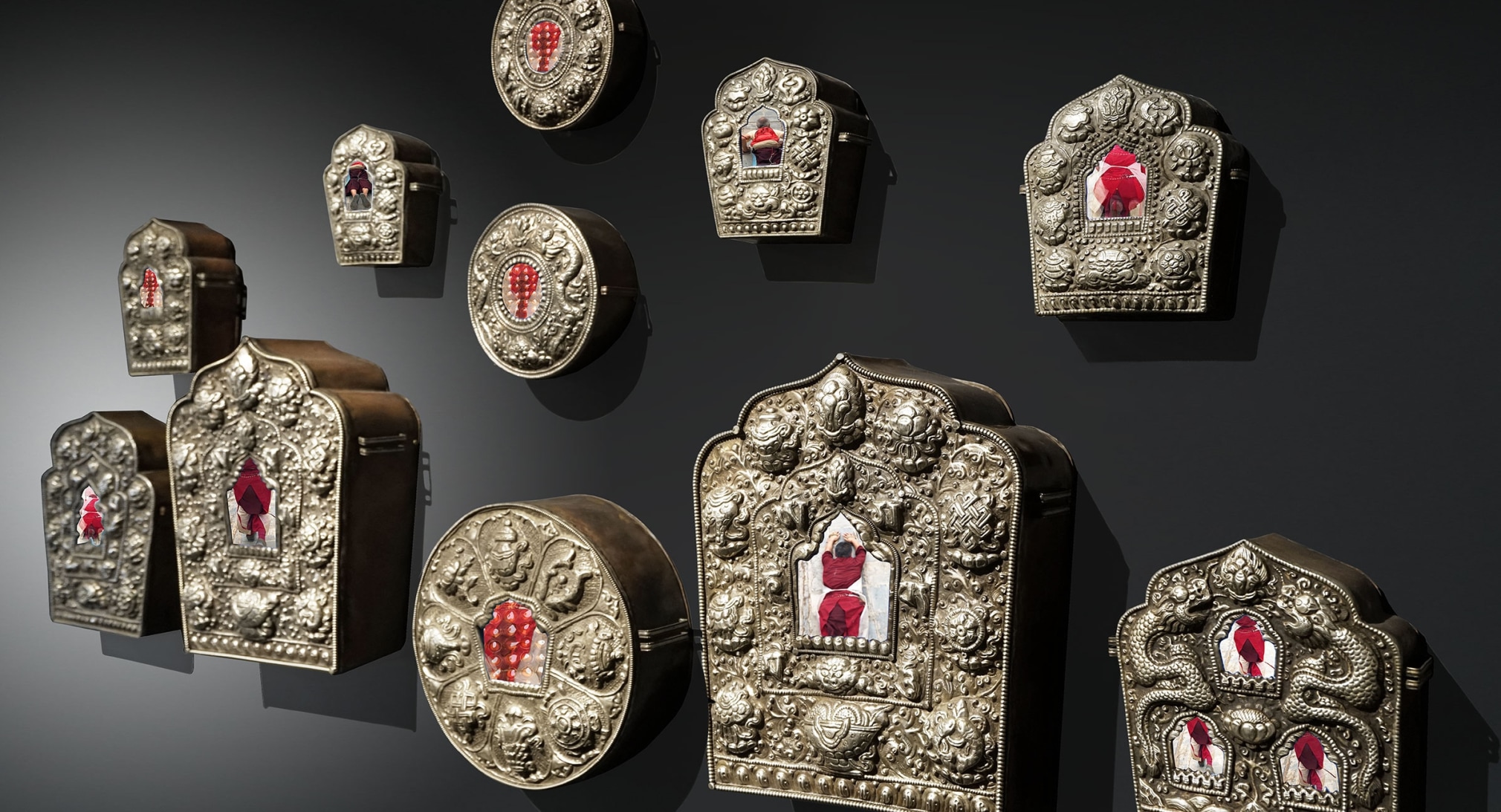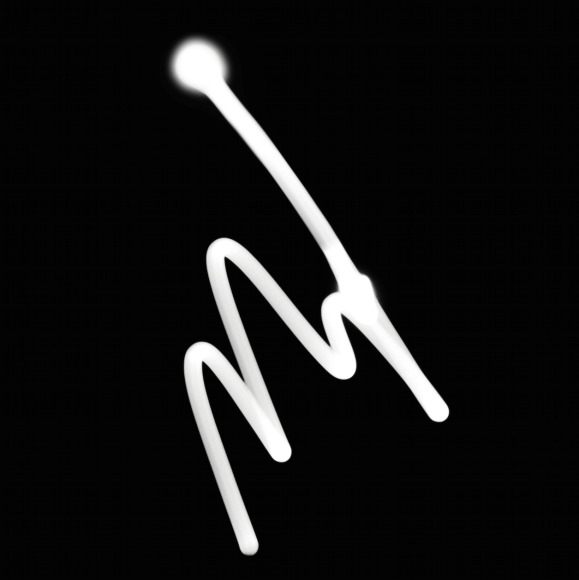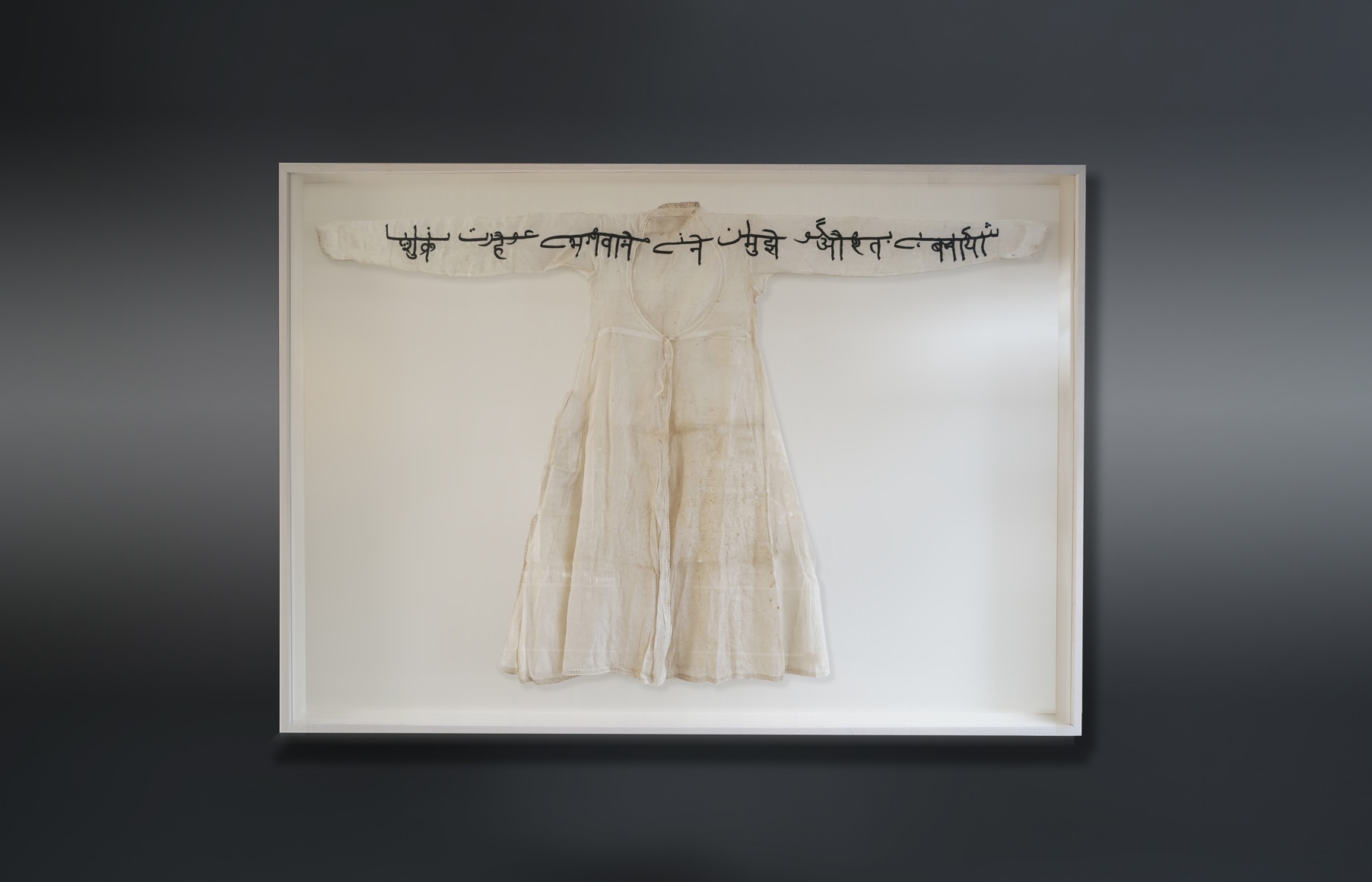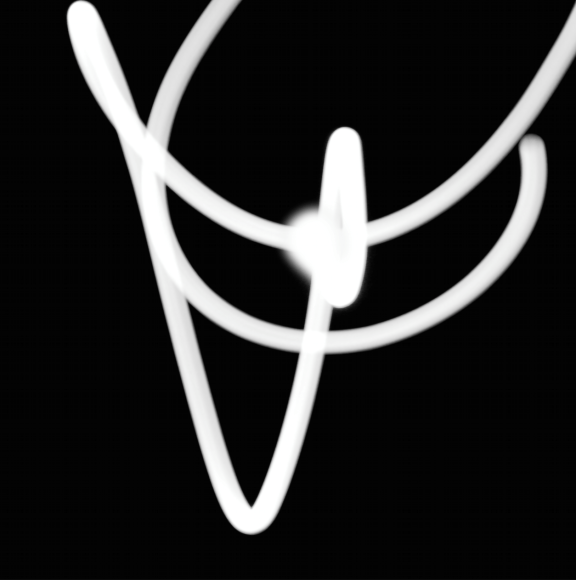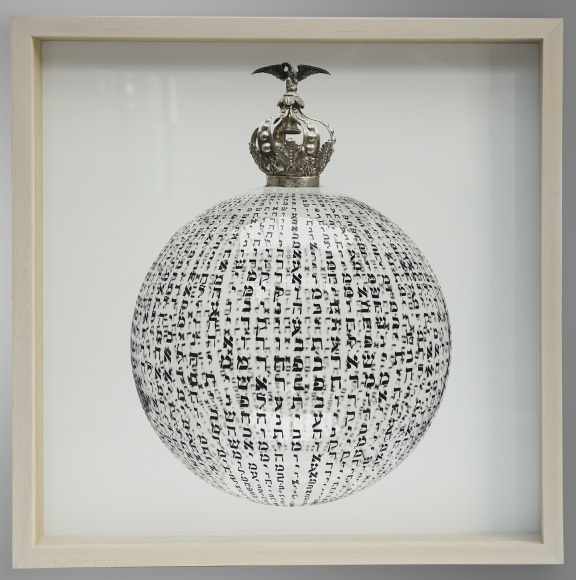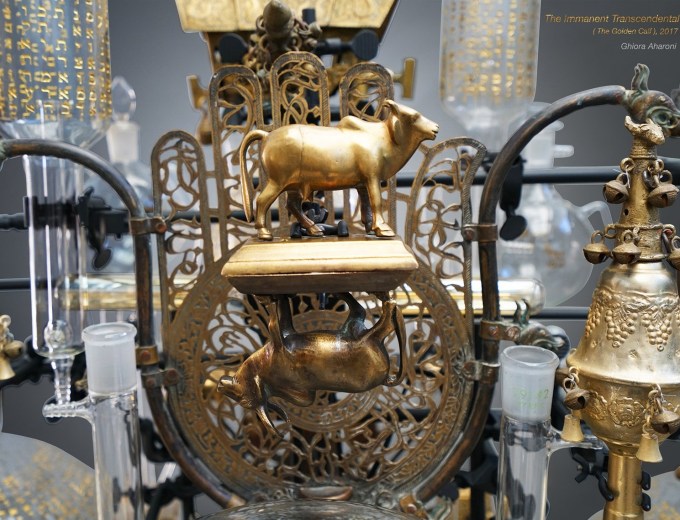
We are pleased to present sculpture, photography and installations by Israeli-born American artist Ghiora Aharoni. The New York-based artist examines complex dualities—from the intersection of religion and science, to the intertwined relationships among seemingly disparate cultures.
Born in Rehovot, Israel, in 1969, Aharoni grew up in a home full of diverse cultures and languages. He was introduced to the central texts of Jewish mysticism at an early age, which he incorporates into his work in abstract and literal ways. He often merges sacred texts of different faiths with traditional objects, such as vintage glass beakers and nineteenth-century Torah finials. By combining these texts and cultural artifacts and imbuing them with new meaning, Aharoni invites us to expand our perceptions of how cultures, religions and genders are interwoven.
Aharoni has exhibited his work widely, including at the Rubin Museum, New York, the Jewish Museum Vienna, the Museum of Contemporary Art, London and Dr. Bhau Daji Lad Museum (formerly The Victoria & Albert Museum), Mumbai. His work is in the collections of The Metropolitan Museum of Art, The Morgan Library & Museum, Centre Pompidou in Paris, the Kiran Nadar Museum of Art, New Delhi, and Washington D.C.’s National Gallery of Art, among others.
Aharoni’s work is on view at The Textile Museum in Washington D.C. through April 2022. The exhibition, which explores the metaphysical relationship between text and textiles, is part of a year-long collaboration with the museum, along with a research residency, academic seminars, public programs and another exhibition later this year.

